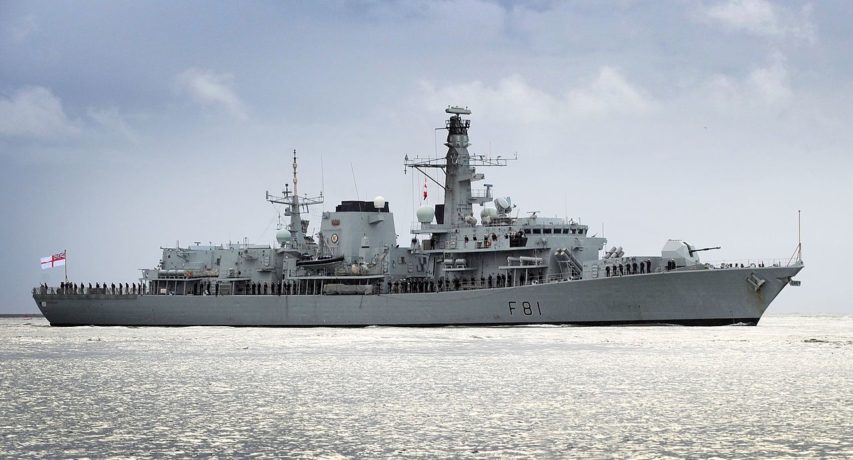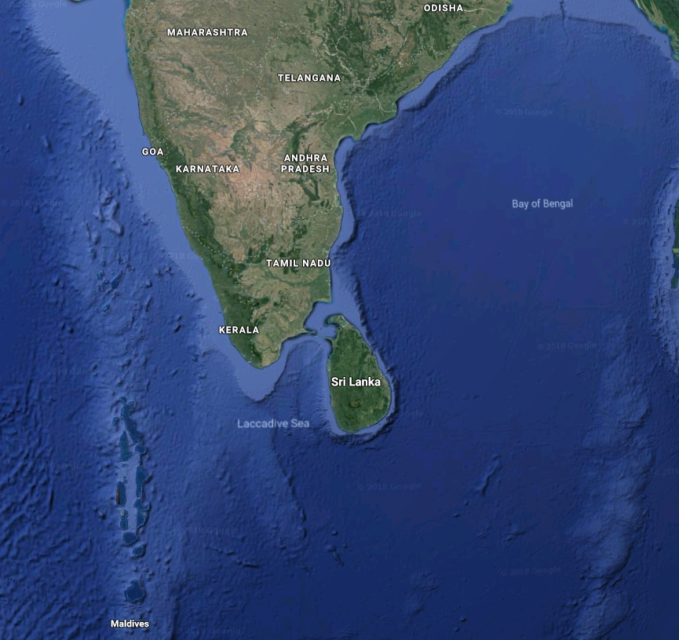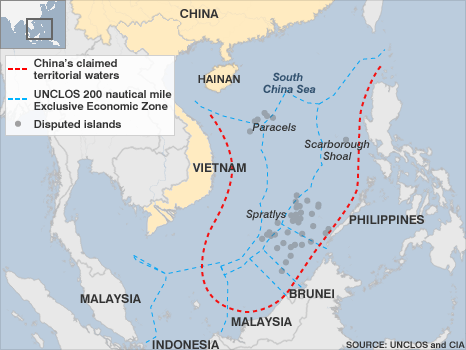Extra Credits
Published on 31 Mar 2018How DO you pronounce Genghis Khan’s name? What cool stories did we have to leave out of the main animated series? And how does Walpole fit into all this? It’s time for Lies, featuring Jac Kjellberg (writer) and James Portnow!
April 1, 2018
Genghis Khan – Lies – Extra History – #7
March 26, 2018
Genghis Khan – The Final Conquering Years – Extra History – #6
Extra Credits
Published on 24 Mar 2018Genghis Khan wanted to establish a long-lasting legacy of conquering and growth for the Mongols, but at what cost? Even his own sons fought each other for the throne. Would peace truly last in the lands he had conquered?
March 20, 2018
March 18, 2018
Genghis Khan – Beginnings of the Great Mongol Nation – Extra History – #5
Extra Credits
Published on 17 Mar 2018The man now known as Genghis Khan, leader of all Mongols, was ready to show the world what he was made of. He acted in fairness towards his own people and happily began integrating Chinese citizens and their culture, but showed no mercy to those who opposed him.
March 12, 2018
Genghis Khan – Khan of All Mongols – Extra History – #4
Extra Credits
Published on 10 Mar 2018Temüjin had a plan: a set of strategies to keep amassing wealth and followers for himself while keeping unity between all the disparate Mongol tribes he was collecting. But Jamukha and Ong Khan had other plans…
March 5, 2018
Genghis Khan – The Debut of Temüjin Khan – Extra History – #3
Extra Credits
Published on 3 Mar 2018Jamukha and Temüjin were officially fighting for control of the Mongolian steppes, appointing themselves the titles of “khan.” But each man practiced wildly different strategies to gain prestige — Jamukha showed no mercy, but Temüjin took a more egalitarian route.
March 3, 2018
China’s growing presence in the Indian Ocean
At Strategy Page, a useful primer on recent Chinese moves to set up another facility in India’s sphere of influence, this time in the Maldives:
China and India are threatening each other over who should do what in Maldive Islands just south of India. This conflict heated up at the end of 2017 when China and the Maldives signed an agreement that allowed China to build and operate a “Joint Ocean Observation Station”. This monitoring station would be built on an atoll that is the closest part of the Maldives to India. Opposition politicians in the Maldives claim China has already taken possession of sixteen small islands and that China has been investing heavily in the Maldives economy and influential politicians.
This agreement was apparently obtained by Chinese bribes and assurances that there would be more Chinese investments. Meanwhile the Maldives government is in chaos over elected officials and the Supreme Court judges disagreeing about who should actually be in charge. The tiny (248 square kilometers spread over 1,192 coral atolls spread over 90,000 square kilometers of water off the southern coast of India) nation has a mostly Moslem (98 percent) population of 430,000 plus 100,000 foreign workers (a third of them illegals). Most of the population is concentrated on about 15 percent of the islands. The per capita income is about $10,000 and most of it is based on tourism followed by fishing. Many young men have been attracted to Islamic terrorism but there is not much religious violence in the Maldives. While a democracy the religious parties and military have kept the government in turmoil by asserting decidedly non-democratic powers.
Over the last decade India has become alarmed at growing Chinese investment in neighboring countries (like Sri Lanka, Maldives and Bangladesh). Chinese firms are more experienced and effective at arranging these foreign investments and India’s smaller neighbors feel more comfortable with investment from distant China rather than neighbor (and sometimes big bully) India. The Chinese economic investments often have military implications, like China building satellite ground stations in Sri Lanka, a major port in Pakistan and now an “Ocean Observation Station” in the Maldives.
China had earlier persuaded the Maldives to join its OBOR (One Belt, One Road) project. The Maldives would be part of the “maritime road” going from Chia, through the newly annexed South China Sea and into the Indian Ocean and sea routes to the Persian Gulf the Suez Canal and East Africa and beyond. The Maldives government has always been unstable and Islamic radicalism is still an issue there. Islamic terrorists were never able to establish themselves in the Maldives, although they tried. In 2007 three men were sentenced to 15 years in prison for carrying out a terror bombing attack three months earlier that wounded a dozen tourists. The Islamic radicals were intent on destroying the tourist industry, which is the main source of income in the Maldives, because they saw it as un-Islamic. Most people on the Maldives did not agree with that, and justice was swift. However, ten Islamic radicals responsible for planning the bombings fled the country the day before the attack and are being sought in Pakistan.
March 2, 2018
Canada’s foreign policies, in the wake of recent Prime Ministerial mis-steps
Ted Campbell suggests that our current foreign policy goals have been seriously undermined by the — shall we say “disappointing” — outcomes of Prime Minister Trudeau’s Chinese and Indian trips:
[Former senior Canadian diplomat David] Mulroney begins by saying that: “The best that can be said about Prime Minister Justin Trudeau’s visit to India is that it may prompt a review, if not a complete rethinking of a Canadian foreign policy that appears to be seriously off the rails. We have some hard lessons to learn … [and] … At the very least, the Prime Minister’s debacle in India should encourage smart people in Ottawa to zero in on what isn’t working.” That’s good thinking. At the end of every major campaign, an especially after campaigns in which things go awry, good military commanders convene a board of senior officers to consider “lessons learned,” in the hope that they will not make the same mistakes next time. sadly, especially today, the lessons learned are all too quickly forgotten even if the analysis was rigorous enough in the first place.
“Most worrying,” David Mulroney says, “is a fundamental and puzzling failure at the level of policy implementation, something that appears to be compounded by the Prime Minister’s own impetuosity. Flying to India before the big meeting with Prime Minister Narendra Modi was in the bag, much like heading off to Beijing on a free-trade themed visit without any reasonable expectation that a deal was doable, exposes Mr. Trudeau to a degree of prolonged public skepticism that comes to define the visit itself.” In other words: Justin Trudeau goes off “half cocked” as we soldier say … not ready for action. That is, I suspect, in part because his team in the Prime Minister’s Office (PMO), was brilliant on the campaign trail in 2015 but is really unqualified to advice the leader of the government of the G7 nation; that poor quality of policy advice matters because Justin Trudeau was, and still is, to be sure, “just not ready” for the job he was handed. But his
officecampaign team wants to get and keep him in the public eye because that’s part of the 2019 campaign strategy … this time it failed because they really didn’t understand the business at hand.[…]
But India is not just any country, as Mr Mulroney explains: “India isn’t our friend. It is a rising regional power beset with a range of domestic problems, including serious human rights issues. It takes a prickly approach to global issues that is often at odds with traditional Canadian policies in areas ranging from trade policy to nuclear disarmament … [and, he says] … The Indian diplomats I worked with could be wonderfully pleasant after the official day was done. But, for the most part, they brought a formidably ruthless precision to their pursuit of India’s interests in the world. While they might ultimately agree to grant Canada a concession, this was always a product of hard and often heated negotiations. They never conceded a point because they liked us or because we are home to a large Indo-Canadian community.” Further, he adds that “My experience with Chinese diplomats was entirely similar.” Although never at the same level as Mr Mulroney, I worked in the international arena as a senior officer, especially in one sector (global radio-communications which included arranging for the expansion of mobile communications in the 1990s. My Chinese and Indian colleagues were, indeed, fine men and women but they, just like me, were there ~ Geneva, a lot, but everywhere from Washington, London, Canberra and Tokyo to Beijing ~ defending their interests. “friendship,” even long standing alliances didn’t count for anything. Billions of dollars were at stake, profits and losses would hinge on how we ~ engineers and lawyers and businessmen and soldiers from dozens of countries ~ managed to slice up the radio spectrum to allow these new services to thrive. The Chinese and Indian delegates were just as professional, just as technically qualified, just as hard nosed as the Americans, Brits and Canadians.
“Long before the election of U.S. President Donald Trump,” David Mulroney says, “it should have been clear to us that the world is changing in ways that do not align with traditional Canadian views, interests and values. If we’re smart, the rise of countries like China and India can certainly contribute to our prosperity, and with hard work, we should be able to find common cause on important issues such as global warming … [but, he adds] … the rise of these assertive and ambitious Asian powers will almost certainly challenge global and regional security. Both will also continue to reject traditional Canadian notions about global governance and human rights, and neither will be particularly squeamish about interfering in Canadian affairs.” Sunny ways, feminism and being green don’t count for much; they are very certainly not a sound foundation upon which to build a foreign policy. We have to start thinking about our vital interests in the world ~ about what they are and about how we can and will protect and promote them: that’s the basis of a grand strategy. It was also the kind of thinking that Stephen Harper hated: he wanted to deal with issues incrementally, linking them together, sometimes, into a coherent web but never allowing them to become too important in and of themselves. That was bad enough but I’m persuaded that Justin Trudeau doesn’t think about those “big ideas” at all … because, I fear, they are, simply, quite beyond his comprehension.
February 28, 2018
China: Triumph and Turmoil, Episode 1 – Emperors
Niall Ferguson
Published on Jan 31, 2018Niall Ferguson shows how the vast apparatus of the Chinese state has always been called on to subjugate individual freedom to the higher goal of unity. Ferguson also examines how, on the other hand, centralized control produces tensions that threaten to destroy the country.
February 26, 2018
Genghis Khan – The Rivalry of Blood Brothers – Extra History – #2
Extra Credits
Published on 24 Feb 2018When Temüjin needed help to find his kidnapped wife, Börte, his blood brother and friend Jamukha came to his aid, and the two eventually combined their camps and families. But peace would not last long…
February 25, 2018
Feature History – Russo-Japanese War
Feature History
Published on 28 May 2017Hello and welcome to Feature History, featuring a Russian and Japanese disagreement, and why you don’t record when sick.
February 19, 2018
Genghis Khan – Temüjin the Child – Extra History – #1
Extra Credits
Published on 17 Feb 2018As a child, Temüjin was afraid of the world, saddened by its cruelty and an outcast from his own tribe. But his mother, Hoelun, passed on her risk-taking personality to him, a boy who would one day become the famed conqueror Genghis Khan.
February 17, 2018
How a Concubine became the Empress of China – Wu Zetian l HISTORY OF CHINA
IT’S HISTORY
Published on 5 Aug 2015Wu Zetian was the first and only Empress of China. Skillfully, she worked her way up, entering the imperial court of Emperor Tang Taizong as a concubine. After his death she would marry his son, Emperor Kaozong. Later she would ruthlessly dethrone two of her own sons and take power herself, effectively introducing an interregnum to the Tang dynasty. During her very own Zhou dynasty she was known as a kind and fair ruler and made Buddhism state religion. Learn all about the Biography of one of the most popular and at the same time merciless women in Chinese history in today’s episode of IT’S HISTORY.
February 15, 2018
HMS Sutherland to conduct Freedom of Navigation exercise (FONOPS) in the South China Sea
Gareth Corfield on the current voyage of the Royal Navy frigate HMS Sutherland (F81):

HMS Sutherland (F81), a Type 23 frigate of the Royal Navy
Photo by Vicki Benwell, RN and released by the Ministry of Defence.
A British warship has set sail for the South China Sea, paving the way for aircraft carrier HMS Queen Elizabeth to do the same thing in three years’ time.
HMS Sutherland, a Type 23 frigate, will sail through the disputed region on her way home from Australia, as much to fly the flag in foreign climes as to carry out a dry run ahead of the nation’s flagship doing the same thing in 2021.
The South China Sea is one of the world’s naval choke points. Very high values of trade (the total value was estimated by the Daily Telegraph as £3.8tn) either originates in or passes through the sea. The region is under dispute chiefly because of China, which is trying to extend its territorial limits (and thus the area it can directly control) by building artificial islands to embiggen its borders.
Sutherland will be carrying out a freedom of navigation exercise, which is where a warship sails through a disputed bit of sea to send the message “you can’t stop us doing this”. The idea is to reinforce the notion that international waters, where anyone has right of free passage, can’t be unilaterally claimed by one country.
January 30, 2018
The Three Teachings – Taoism, Buddhism, Confucianism l HISTORY OF CHINA
IT’S HISTORY
Published on 1 Aug 2015The Three Teachings Taoism, Buddhism and Confucianism have been a backbone of Chinese society and culture since the bronze age. The Three teachings are still intertwined strongly with today’s China. There are different interpretations to China’s chore faiths. Over time, different dynasties favoured different faiths, if only to define themselves against their predecessor. Ultimately though, its all about the philosophy of combining spirituality with every day life. All about the Three Teachings now on IT’S HISTORY.





